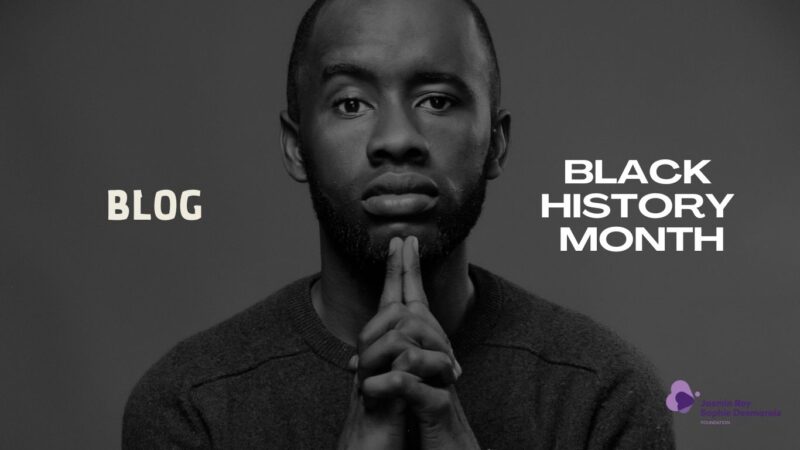Each year, Black History Month, celebrated in February, provides an opportunity to reflect on the legacy of Afro-descendants and their contributions to society. Beyond commemorations, this month serves as a crucial reminder: the ongoing fight against racial inequalities and the recognition of the deep-rooted nature of systemic discrimination. Understanding Black history means better understanding current social dynamics and, more importantly, recognizing the importance of becoming an ally in the fight against racism.
The Importance of Knowing Black History
Black history does not begin with slavery, nor does it end with civil rights movements. It dates back to flourishing African civilizations centuries before colonization and the transatlantic slave trade. Kingdoms such as Ghana, Mali, and Songhai were centers of trade, education, and culture in West Africa long before Europeans set foot on the continent.
However, slavery and colonization disrupted these societies, imposing centuries of dehumanization, violence, and oppression. These dark periods had profound effects on social and economic structures, which still persist today through racial inequalities. In North America and Europe alike, Black history is marked by resilience, innovation, and the creation of new spaces for freedom. Figures such as Harriet Tubman, Rosa Parks, Martin Luther King Jr., and Nelson Mandela played fundamental roles in the fight for equality, but much work remains to be done.
Why Is It Important to Learn This History?
Ignoring Black history means ignoring a fundamental part of world history. This history is essential to our understanding of contemporary society, as it sheds light on power dynamics and the social and economic structures that continue to marginalize certain communities. It also helps us comprehend the complex relationships between institutions and systemic racism.
By learning about Black history, we can better understand how racial biases became entrenched in our societies and why dismantling them is so crucial. Additionally, this knowledge highlights the invaluable contributions of Afro-descendants in fields as diverse as culture, science, politics, and the economy.
Becoming an Ally in the Fight Against Racism
Knowing history is only the first step. However, being a true ally in the fight against racism requires conscious and continuous action to support Black communities and actively work towards dismantling systemic inequalities. Here are some ways to be a meaningful ally in this movement:
Educate Yourself Deeply
Reading books, watching documentaries, and listening to podcasts about Black history and systemic racism is crucial. Works such as *The New Jim Crow: Mass Incarceration in the Age of Colorblindness* by Michelle Alexander, *Why I’m No Longer Talking to White People About Race* by Reni Eddo-Lodge, and *Les grandes figures africaines* by Amadou Hampâté Bâ offer rich and nuanced perspectives on the Black experience over time. Education should not stop at well-known movements but should also include local histories, stories of everyday resistance, and the diversity of Black experiences worldwide.
Acknowledge Your Privilege
Being an ally also means recognizing your own privileges. If you have never faced racial discrimination, that is a privilege to be aware of. This does not mean you haven’t worked hard for your success, but simply that your skin color has not been an obstacle. This awareness is essential to avoid defensive or dismissive attitudes toward the experiences of racialized individuals.
Listen to and Amplify Black Voices
In the fight against racism, it is important not to speak on behalf of affected communities. Listen to Black voices, take the time to understand their experiences, and amplify their messages. Social media, local organizations, and online platforms offer a wealth of testimonies and analyses that deserve to be highlighted.
Take Action Against Injustices, Even If They Don’t Directly Affect You
Being an ally also means intervening when you witness racism or discrimination. Whether at work, on the street, or in social circles, do not let racist remarks or discriminatory behavior go unnoticed. Adopting a proactive stance is essential, even when it involves uncomfortable conversations. Bystanders play a significant role in challenging discriminatory situations.
Moreover, support initiatives that promote equity and inclusion. This can be done through donations to organizations fighting racial inequalities, participating in peaceful protests, or mentoring young people from underprivileged communities.
Support Black Businesses and Initiatives
Another way to support Black communities is by encouraging and promoting Black-owned businesses, creators, and artists. This is not just an economic act but also a symbolic gesture that shows you value diversity and are committed to economic solidarity.
Commit for the Long Term
Being an ally is not a one-time action. It requires long-term commitment, a constant willingness to learn, unlearn, and contribute to a fairer society. It also means remaining open to criticism and self-reflection.
A Commitment to a Fairer Future
Black History Month is more than just an exercise in remembrance. It is a call to action to reassess our place in society and our role in fighting inequalities. Being an ally means understanding that this struggle is collective and that everyone can contribute in their own way by taking concrete action.
By honoring Black history, we also honor the diversity of our world and the richness of contributions from every community. Together, we can build a fairer future where everyone has a place, free from the chains of racism and systemic inequalities.





